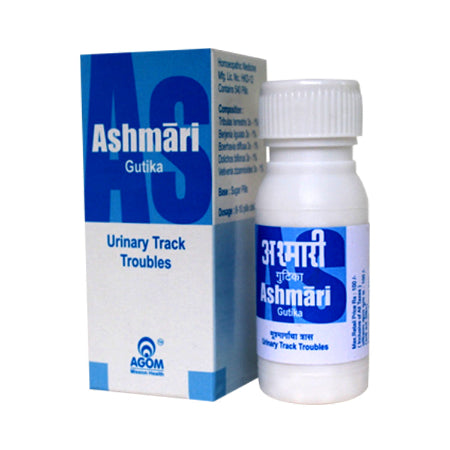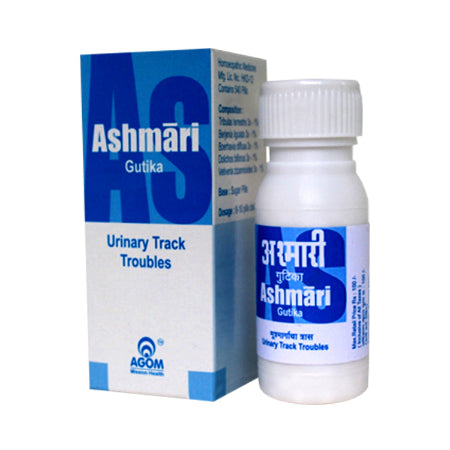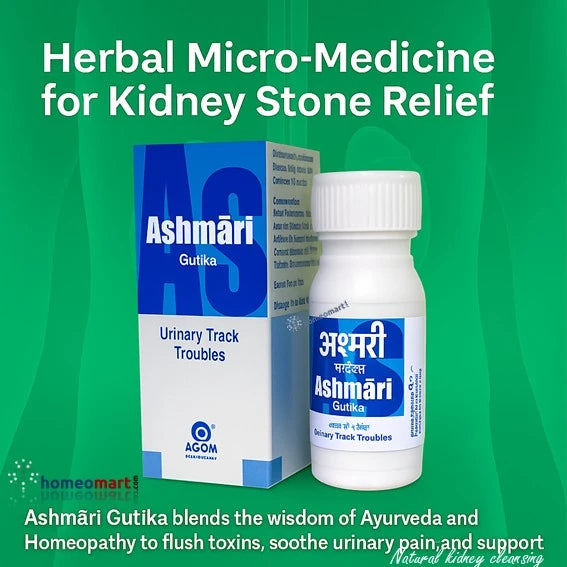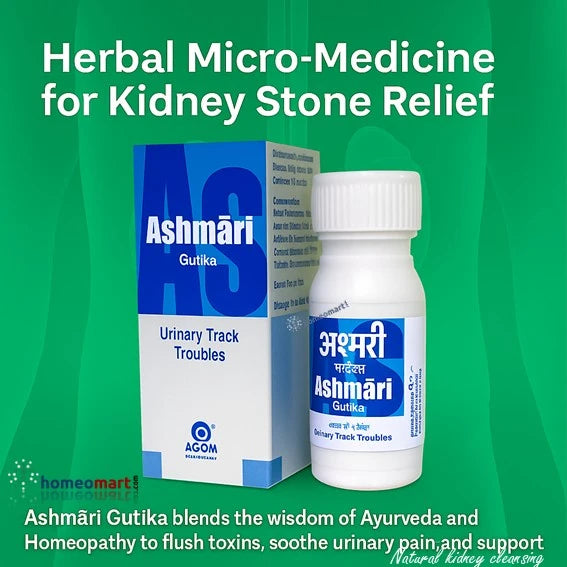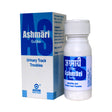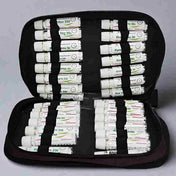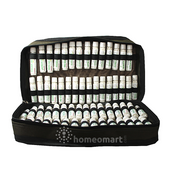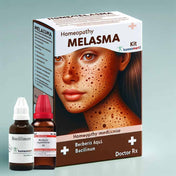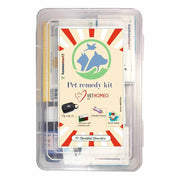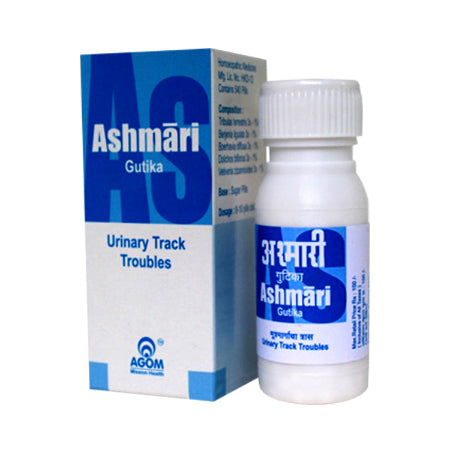Agom Ashmari Gutika | Homeo-Ayurvedic Remedy for Kidney Stones & Burning Urination
Agom Ashmari Gutika | Homeo-Ayurvedic Remedy for Kidney Stones & Burning Urination - 25gm Get 5% Off is backordered and will ship as soon as it is back in stock.
Couldn't load pickup availability
Description
Description
Flush, Soothe & Restore Urinary Health – Naturally.
Agom Ashmari Gutika blends the wisdom of Ayurveda and Homeopathy to flush toxins, soothe urinary pain, and support natural kidney cleansing.
Herbal Micro-Medicine for Kidney Stone Relief, Burning Micturition & Urinary Discomfort
Agom Ashmari Gutika is a Homeo-Ayurvedic medicine designed to support the urinary tract, relieve burning during urination, and aid in the management of kidney stones. Developed under the guidance of Ved S. G. Mahajan, this micro-herbal remedy combines the principles of Electro Homeopathy and Ayurveda into an easy-to-use, side-effect-free formulation.
What It Helps With
-
Pain or burning sensation while urinating
-
Small or moderate kidney stones
-
Urinary tract irritation or inflammation
-
Water retention or sluggish kidney activity
Traditional Herbal Blend for Renal Wellness
The power of Agom Ashmari Gutika lies in its time-honored ingredients, each known in Ayurvedic and traditional medicine for their urinary tract benefits:
-
Gokharu (Tribulus terrestris) 3X – Acts as a diuretic, helps flush small kidney stones and reduces urinary tract inflammation.
-
Pashanbhed (Bergenia ligulata) 3X – Traditionally used to break down stones and ease urinary tract swelling.
-
Punarnava (Boerhavia diffusa) 3X – Known for increasing urine output and reducing water retention; offers antioxidant support.
-
Kulith (Dolichos biflorus) 3X – Promotes kidney cleansing and is believed to prevent stone formation.
-
Vala (Vetiveria zizanioides) 3X – Has cooling and soothing effects on the urinary system, reducing discomfort.
How to Use
-
Dosage: Dissolve 8–10 pills in 1 litre of water.
-
Sip this water gradually throughout the day for consistent therapeutic effect.
For optimal results, maintain a high water intake, avoid heavy oxalate-rich foods, and follow a balanced diet.
Why Agom Ashmari Gutika?
✅ Herbal and safe for long-term use
✅ Targets both symptoms and root causes
✅ No known side effects
✅ Based on time-tested Homeo-Ayurvedic synergy
Ease discomfort. Support your kidneys. The gentle, effective way—Agom Ashmari Gutika.

